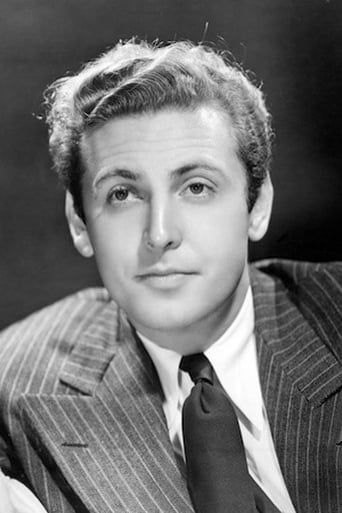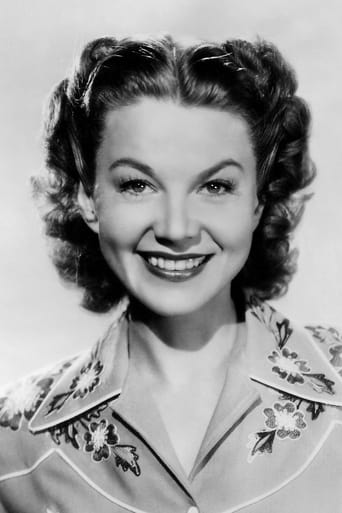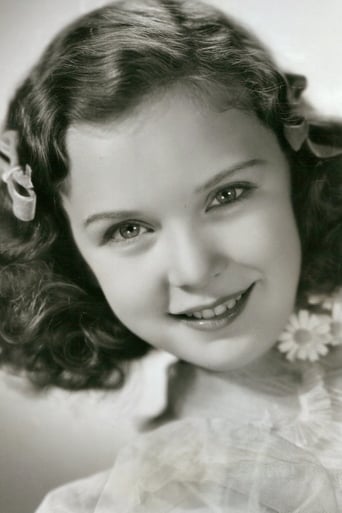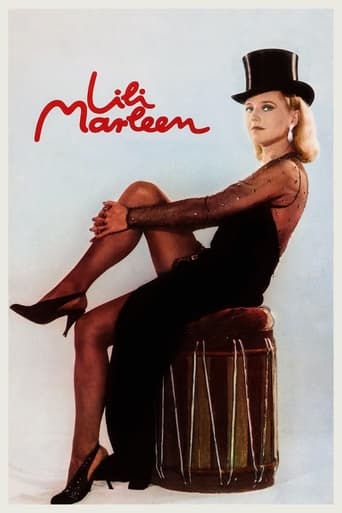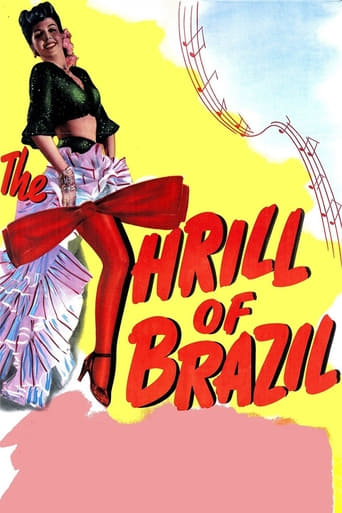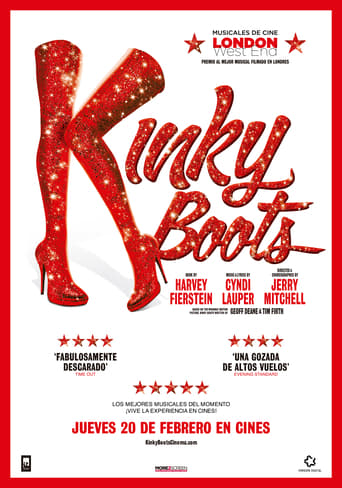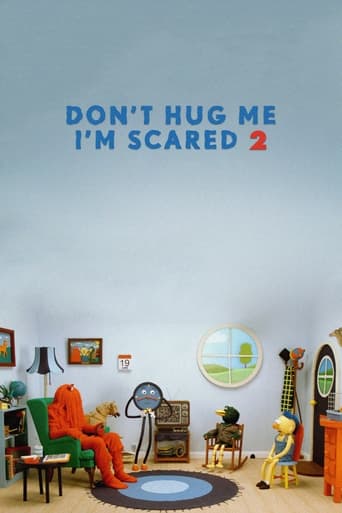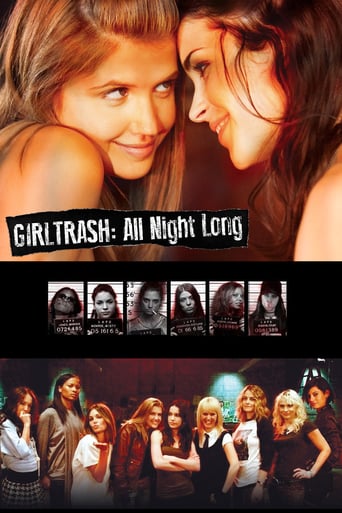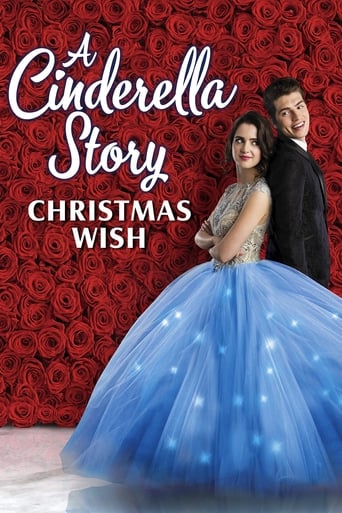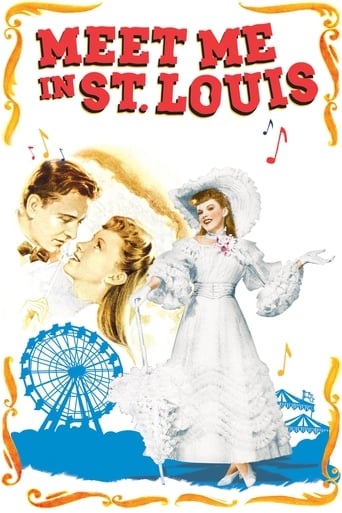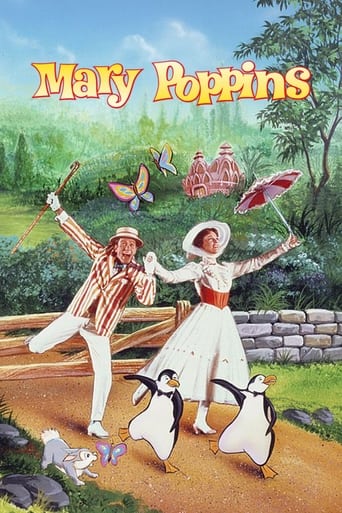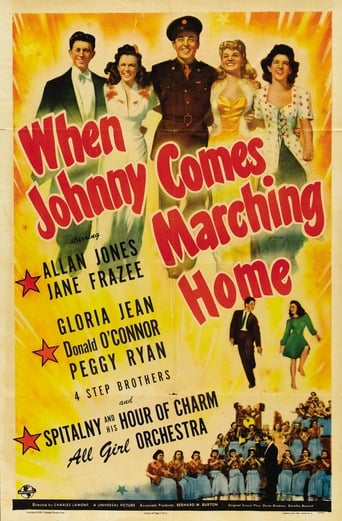
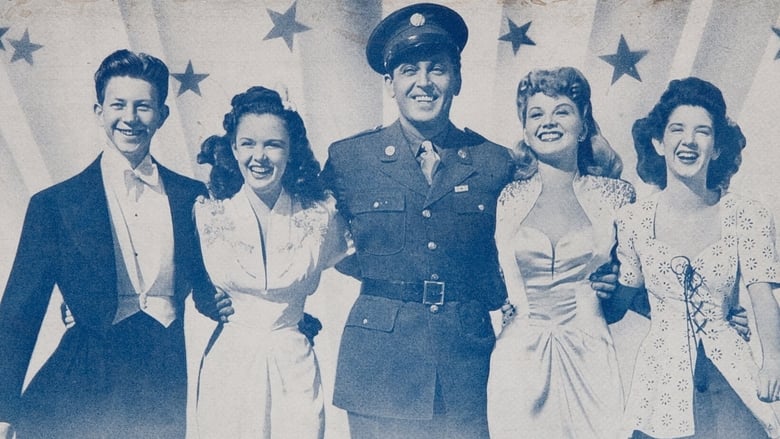
When Johnny Comes Marching Home (1942)
By popular consensus, Allan Jones' best Universal mini-musical of the 1940s was the timely When Johnny Comes Marching Home. Jones is cast as war hero Johnny Kovacs, who wearies of the adulation heaped upon him and takes refuge under an assumed name in a theatrical boarding house. Here he befriends orchestra leader Phil Spitalny and his all-girl aggregation, including the inimitable Evelyn and Her Magic Violin. When Army officials trace Johnny to the boarding house, his new friends assume that he's a deserter and try to convince him to return to duty.
Watch Trailer
Cast
Similar titles
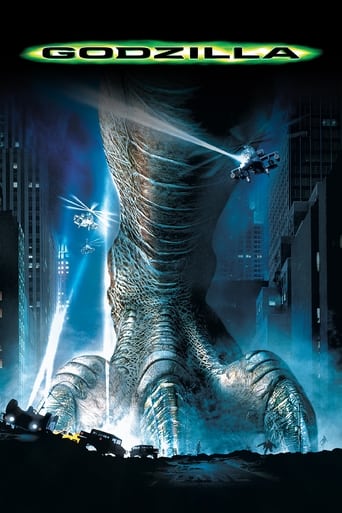
Reviews
Sorry, this movie sucks
I am only giving this movie a 1 for the great cast, though I can't imagine what any of them were thinking. This movie was horrible
While it doesn't offer any answers, it both thrills and makes you think.
This is a dark and sometimes deeply uncomfortable drama
After being a little disappointed in seeing Donald O'Connor not having much of a dancing showcase in either Private Buckaroo or Get Hep to Love, it's finally gratifying seeing him really cutting the rug here with Peggy Ryan doing so many turns with him during those sequences. Operatic singer Gloria Jean also joins in with them in her more demure way. Allan Jones and Jane Frazee also sing a couple of wonderful love duets here. Then there's the luminous and exciting charm of the Phil Spitalny and his "Hour of Charm" All-Girl Orchestra with Evelyn and her Magic Violin. Also, The Four Step Brothers do tap dance up a storm with their athletic spins and somersaults. Never mind the story which relates to the World War II period, just enjoy the variety of musical performances in When Johnny Comes Marching Home. P.S. The print I saw had the final number in washed out tones with the volume a little lower though you could still hear a little clearly even then.
Allan Jones is a war hero who comes home on sabbatical not in uniform, and the people surrounding him fear the worst in this delightfully simple musical about the challenges of war at home. He's actually on a secret assignment, and they believe he's AWOL. His younger brother (Donald O'Connor) looks up to him like a younger brother should, yet Jones is not allowed to reveal the truth about why he's home for such a long sabbatical as 10 days. While home, Jones finds a bit of romantic intrigue with sophisticated Jane Frazee who anxiously wants her younger sister (Gloria Jean) to pursue a career as a singer of classical music rather than the jazzy stuff she performs with O'Connor and their pal (Peggy Ryan, who gets to utter one of the funniest lines I've ever heard in a movie, "Let's have fun while we're still young and still have sense!"). This leads to a variety of types of music and some dance numbers that outshine some of the bigger musicals at larger Hollywood studios of the time.There's a sensational acrobatic number with the Four Step Brothers, a black dancing troop that rival the Nicholas Brothers (over at 20th) and Berry Brothers (at MGM). The musical numbers come fast and furious, and leave enough room for the plot so the film never slows down like some virtually plot less musicals of the same era did. While the songs are obscure in today's catalog of the great American songbook, they are certainly worth re-discovering. Unlike some larger budget propaganda musicals of the time, the patriotism here never seems forced, making the title appropriate as it reminds us now (as it attempted then) that freedom is something worth fighting for, and as long as men are willing to fight for it, the world will continue to rise above tyranny.
When Johnny Comes Marching Home Again finds Allan Jones as a hero soldier on home with some well earned leave, not only from combat, but from a bond tour where shapely débutante Marla Shelton has been sticking to him like glue. He's a fighting man under his real name, Johnny Kovacs, but everybody knows him under the name of Johnny O'Toole when he was in his civilian occupation, singer with Phil Spitalny's band.Coming home he finds that Phil Spitalny's whole orchestra is now women including new singer Jane Frazee. She's got a sister played by Gloria Jean who has a trio act going with Donald O'Connor and Peggy Ryan. O'Connor's mother Emma Dunn is Jones's former landlady and it's her place he considers home.They don't know him as Johnny Kovacs the hero, they only know him as band singer Johnny O'Rourke who enlisted in the army. And somewhere along the line they all get the idea he's gone AWOL. It makes for bulk of the plot in this fast paced musical of the World War II years.For those who aren't familiar Phil Spitalny's Orchestra in real life was an all female ensemble, very popular in the Thirties and Forties. Of course with women filling jobs in a lot of traditionally male roles, the gender of the orchestra's musicians was used for a nice gag.Composers Gene DePaul and Don Raye wrote the bulk of the score as they did for a lot of musical products at Universal. But Allan Jones had the good sense to have the Howard Deitz-Arthur Schwartz classic You And The Night And The Music interpolated in the film. His singing it with Jane Frazee and Gloria Jean is the musical highlight of the film.When Johnny Comes Marching Home is a pleasant, but dated wartime musical film. O'Connor and Ryan were teamed in several films in this era by Universal and are entertaining. And the Four Step Brothers do a nifty dance drill version of The American Patrol.If you like films of this era or you love Allan Jones's voice as I do, you'll like When Johnny Comes Marching Home.
"When Johnny Comes Marching Home, was one of several musicals made by Universal during the WW2 years. This one was different from most made during this era in that it was aimed not only at teenagers, but at the adults as well.This movie was shot in 1942, at a time in which the USA was just starting to get heavily involved in WW2. The plot is simple: A war hero is on a 30 day leave and wants to spend his furlough in peace and anonymity. He assumes a different name and settles in. In the process, the people he's around mistakenly think he's a deserter and scheme to convince him to turn himself in. Dramatic irony sets in, the usual complications ensue, and eventually everything gets straightened out. The movie gets zealously patriotic at times, and some of the situations in the movie are dated to the war years and won't be fully understood by those not familiar with how times were then.Universal didn't really splurge on acting talent in this film. Well-known Allan Jones and Jane Frazee highlighted the marquee, with studio contract-kids Gloria Jean, Donald O'Connor, and Peggy Ryan doing their part. The rest of the cast were pretty much stock. What Universal didn't scrimp on was entertainment; the movie is packed with it from beginning to end. Jones, Frazee and Jean all sing several songs. Popular Phil Spitalny appears with his "all girl orchestra". O'Connor and Ryan are their usual zany selves, and of course they perform a couple of their energetic dance routines (with Jean joining them briefly in each), and they even sing. Violinist Evelyn Silverstone (billed as "Evelyn and her Magic Violin"), who later gained fame with Lawrence Welk, performs a couple of virtuoso numbers. Other song and dance routines are worked in by others. As was the case in many of these musicals, Universal basically built the story around the entertainment.I haven't seen this movie on TV in recent years, but as is the case for every movie that Gloria Jean appeared in, you can buy a copy from Gloria herself on her website. IMDb policy forbids the listing of URLs, but you can find her website by using a search engine and her full name of "Gloria Jean Schoonover." If you're a fan of the old "B" musicals, you'll want to see this one.
